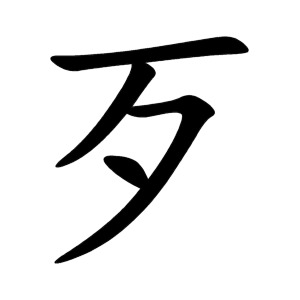歹
- bare bones, the bones remaining after the meat has been cut away;
- bad;
It conveys meanings such as "emaciated bones" or "evil/bad."
Usage in Korean
When used as a radical, it generally conveys meanings related to death, injury, or harm, so most characters under this radical have negative or ominous meanings.
However, there are some exceptions with neutral meanings, such as 殊 (different), 殖 (to increase), and 殘 (to remain).
For example, the character 飱 (meaning "evening meal") has a neutral meaning, but the others like 殊, 殖, and 殘 originally related to meanings such as execution (beheading), old land, cruelty, or leftover remnants.
The character 殘 especially is used in words with negative connotations like 잔반 (leftover food) and 패잔병 (defeated soldiers), reinforcing the association with 歹 (the "death" radical).
Characters with 歹
6 strokes
9 strokes
10 strokes
12 strokes
14 strokes
歹
뼈앙상할 알
나쁠 대
ppyeoangsanghal al
nappeul dae
Kangxi radical:78
Strokes:4
Unicode:
Cangjie input:
- 一弓戈 (MNI)
Composition:
- ⿱ 一 夕
